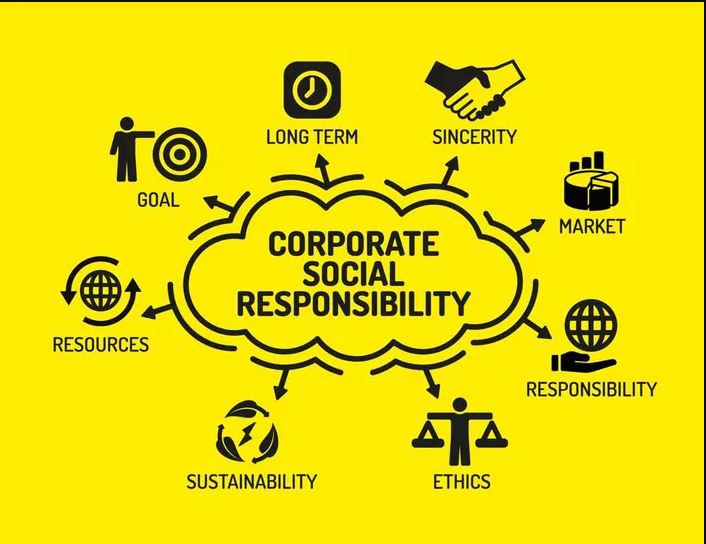
Now at its best, the concept of corporate social responsibility (CSR) has evolved from being a mere buzzword to a fundamental pillar of sustainable success.
At its core, CSR embodies the notion that businesses have a responsibility not only to generate profits but also to make meaningful contributions to the world around them. But what exactly does social responsibility entail?
Social responsibility encompasses a spectrum of actions and initiatives undertaken by corporations to address the needs of various stakeholders, including employees, customers, communities, and the environment. It goes beyond philanthropy and charity to encompass ethical business practices, environmental sustainability, and social impact.
One aspect of CSR involves fostering a workplace culture that values diversity, equity, and inclusion. This means ensuring equal opportunities for all employees, regardless of race, gender, or background, and promoting a safe and supportive work environment. Companies can also invest in employee development programs, health and wellness initiatives, and work-life balance policies to enhance the well-being of their workforce.
Again, responsible businesses are mindful of their environmental footprint and strive to minimize negative impacts on the planet. This may involve adopting eco-friendly practices, reducing waste and emissions, and investing in renewable energy sources. By embracing sustainability, companies not only contribute to the preservation of the environment but also future-proof their operations against climate-related risks.
CSR also extends to the broader community. This includes supporting local charities and nonprofits, volunteering time and resources, and engaging in community development projects. By actively participating in the communities where they operate, businesses can foster goodwill, build trust, and create shared value for all stakeholders.
However, it’s important to recognize that social responsibility is not just about altruism; it also makes good business sense. Studies have shown that companies with strong CSR initiatives tend to attract and retain top talent, enhance brand reputation, and drive long-term financial performance. Moreover, in an increasingly interconnected world, consumers are increasingly demanding ethically and socially responsible products and services.
In essence, social responsibility is about finding a balance between profit and purpose. It’s about recognizing that businesses have a broader role to play in society beyond maximizing shareholder wealth. By embracing CSR, companies can create a more sustainable and equitable future for all stakeholders, while also driving value for their shareholders. In doing so, they not only fulfill their moral obligations but also lay the foundation for long-term success in the 21st century marketplace.
Corporates must, therefore, remember that true prosperity lies in being useful not just for themselves but also for the larger society. That way, generations to come can then experience a more inclusive, sustainable and prosperous world.
[give_form id="20698"]

